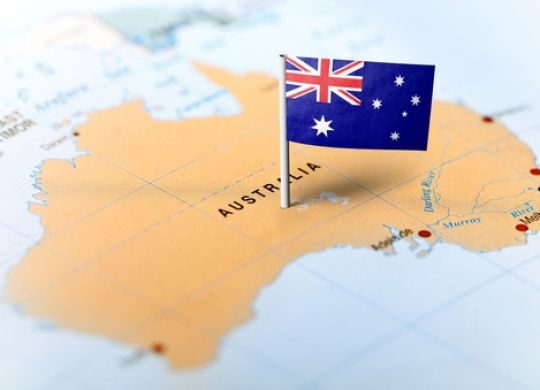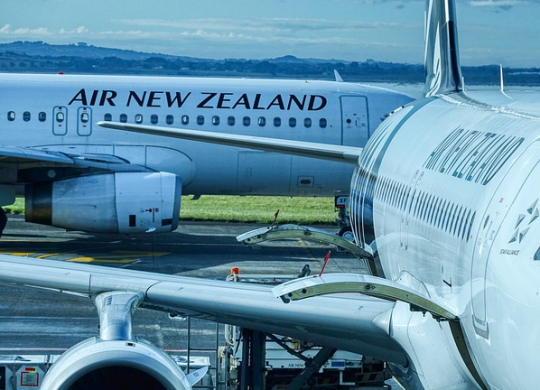Work in New Zealand: 8 major changes to New Zealand work visas coming in March 2025
Table of contents
- Average wage requirement removed
- Reduced work experience requirement
- Simplified employer interaction with the Ministry of Social Development (MSD)
- Visa validity extended for lower-skilled workers
- Higher income threshold for family sponsorship
- Recognition of higher ANZSCO skill levels
- More flexible visa options for employers introduced
- Simplifying visa application processes
- Why is New Zealand introducing changes to its migration policy?

New Zealand is introducing significant changes to its Accredited Employer Work Visa (AEWV) program from 10 March 2025 to increase flexibility and attract skilled migrants. Find out which key updates will be available to foreigners very soon
New Zealand is set to make significant changes to its work visa policy to improve accessibility, streamline processes and better meet labour market needs.
Starting in March 2025, the country will introduce eight major updates to the Accredited Work Visa (AEWV) program, which will affect the process of employing foreign workers. These changes are expected to create more flexibility for both employers and migrant workers.
Read more about all the key updates later in this article.
Planning a trip abroad? Choose a reliable health insurance policy on the Visit World portal.
Average wage requirement removed
One of the most notable changes is the removal of the average wage requirement for certain visa categories (AEWV and SPWV).
- How was it?
Previously, employers had to ensure that workers eligible for AEWV were paid at least the average wage, which was around NZ$27.76 per hour.
- What has changed?
Under the new rules, from 10 March 2025, employers will no longer be required to meet this average wage threshold. Instead, they will only need to comply with New Zealand’s minimum wage of NZ$23.50 per hour, which will come into effect from 1 April 2025.
However, employers must still ensure that migrant workers are paid at market rates, which should be comparable to what New Zealand workers in similar positions earn.
- Why is it important?
This change is designed to make it easier for employers to hire skilled workers from overseas. Employers can now hire foreign workers at the minimum wage, which increases employment opportunities and reduces recruitment costs. Migrants face fewer restrictions on wages, making it easier to find work.
Reduced work experience requirement
Another important change is the reduction of work experience requirements for migrants applying for the AEWV.
- How was it?
Previously, applicants were required to have at least three years of relevant work experience.
- What has changed?
From 10 March 2025, this requirement will be reduced to two years. Applicants will still need to provide evidence of meeting the work experience threshold to be eligible for the visa, but this change will make the application process more accessible to younger or less experienced migrants.
- Why is it important?
Reducing the work experience requirement from three to two years speeds up the recruitment process. Qualified workers can get jobs faster, minimizing delays in employment and filling skills shortages faster.
Simplified employer interaction with the Ministry of Social Development (MSD)
- How was it?
Employers were required to vet candidates with the Ministry of Social Development.
- What has changed?
Under the new policy, employers recruiting for lower-skilled positions (classified at ANZSCO skill levels 4 and 5) will no longer need to work directly with the Ministry of Social Development (MSD) when recruiting candidates.
Instead, employers will be required to demonstrate in good faith that they have advertised positions locally and interviewed candidates from the New Zealand workforce. While MSD will no longer be involved in this process, employers must maintain records of their recruitment efforts in case they are needed for verification at a later date.
- Why is it important?
This change is intended to simplify the process for employers, particularly those recruiting for entry-level or seasonal positions.
Visa validity extended for lower-skilled workers
- How was it?
Previously, AEWV holders with ANZSCO skill levels 4 and 5 were only eligible for short-term visas.
- What has changed?
In order to retain lower-skilled workers for a longer period, the visa validity for new AEWV holders with ANZSCO skill levels 4 and 5 will be extended to three years. This extended duration is consistent with the maximum continuous duration of stay permitted under one or more AEWVs, allowing employers to find long-term staff for these positions.
- Why is it important?
Workers can plan long-term employment without frequent renewals, which is beneficial for both workers and employers.
Higher income threshold for family sponsorship
For migrants who want to sponsor dependent children, the required income threshold will increase significantly.
- What was it like?
The current threshold is NZ$43,322.76.
- What has changed?
It will increase to NZ$55,844, which is 80% of the average wage for a 40-hour workweek. This change will help ensure that migrant workers have the financial means to support their families while working in New Zealand. This income threshold will be reviewed and updated annually based on changes in average wages.
- Why is it important?
This ensures financial stability for families, but may make it more difficult for workers on lower incomes to qualify.
Recognition of higher ANZSCO skill levels
Some occupations will be reclassified to higher skill levels within the Australian and New Zealand Standard Classification of Occupations (ANZSCO). In particular, from 10 March 2025, some occupations will be upgraded to ANZSCO skill level 3, allowing workers to have better employment prospects: Animal Groomer (361113), Cook (351411), Kennel Hand (361115), Construction Worker (821712), Fitness Instructor (452111), Slaughterer (831212), Nanny (421113).
In addition, the following occupations will be considered Skill Level 3 if the employer requires three years of experience or a Level 4 qualification: Excavator Operator (721214), Agricultural and Horticultural Mobile Plant Operator (721111), Forklift Driver (721311), Mobile Plant Operators (721999).
This reclassification will have implications for the English language requirements and other eligibility criteria for AEWV applicants. However, it provides workers with access to better visa options. This change benefits critical sectors by attracting more skilled workers with clearer pathways to residency.
More flexible visa options for employers introduced
Employers will now have more freedom to hire workers for short-term or seasonal work. The AEWV program is designed to meet a wider range of labour market needs, including those for temporary or variable roles. This flexibility will make it easier for businesses in sectors such as agriculture, hospitality and tourism to find the right workers while still complying with immigration policy.
Simplifying visa application processes
The overall process for AEWV applicants will be streamlined, with a focus on reducing paperwork and making the application system more user-friendly. This includes streamlining the evidence required for employers and applicants, and improving the efficiency of visa processing. New Zealand hopes to reduce wait times and improve the overall efficiency of the immigration system by digitizing and automating more aspects of the visa application process.
Why is New Zealand introducing changes to its migration policy?
The changes to New Zealand’s work visa system are aimed at addressing the country’s ongoing labour shortages, particularly in sectors that rely on seasonal or low-skilled workers. The flexibility introduced through the revamped AEWV program will help employers better meet their workforce needs, while making it easier for skilled migrants to enter and remain in the country.
In addition, the removal of average salary requirements and reduced work experience criteria are expected to attract a wider range of applicants, including younger workers. The aim is to create a more inclusive immigration system that meets the diverse needs of both employers and migrant workers.
Starting in March 2025, these eight key changes to New Zealand’s accredited employer work visa system will offer more flexibility, reduce administrative burdens and make the process of hiring foreign workers simpler and more accessible.
New Zealand is committed to attracting and retaining talent in an ever-evolving job market.
Consult a migration lawyer for help with your New Zealand work visa application and simplify your journey abroad.
Reminder! New Zealand has introduced new seasonal work opportunities for 2025, providing international workers with more affordable and flexible permit options to support the development of the country's leading industries. We have already talked about the requirements, the level of payment, how to apply for a seasonal work visa to New Zealand and the changes in 2025.
Products from Visit World for a comfortable trip:
Checklist for obtaining a visa and necessary documents in New Zealand;
Legal advice on immigration to New Zealand;
Travel insurance for foreigners in New Zealand;
Medical insurance all over the world.
We monitor the accuracy and relevance of our information, so if you notice any errors or inconsistencies, please contact our hotline.
Recommended articles
2 min
Work
Australia has a high standard of living and good career prospects, which is why this country attracts tens of thousands of migrants from all over the world every year. Learn more about the main provisions of Australia's migration policy in 2025, as well as the procedure for obtaining an Australian work visa and vacancies in high demand in the country
03 lut. 2025
More details2 min
Work
New Zealand is recognized as one of the best countries in the world to live and work. Find out how a foreigner can find a job in New Zealand, what types of work visas are available to an expat, and what is important to know when moving to this country for work.
24 lis. 2024
More details2 min
Work
New Skills in Demand visa in Australia: how to get an Australian residence permit in 2025?
In December 2024, Australia announced the introduction of a new Skills in Demand visa - a special permit that simplifies the movement of skilled professionals to the country. Learn about the main conditions and current requirements for obtaining a permanent residence permit in Australia
12 gru. 2024
More details1 min
Investment
New Zealand's Golden Visa (Active Investor Plus) program has lost popularity among foreign investors in recent years. However, the country's leadership aims to change the conditions to make it more attractive to expats. Find out what conditions for obtaining a residence permit are relevant in 2025
11 lut. 2025
More detailsAll materials and articles are owned by VisitWorld.Today and are protected by international intellectual property regulations. When using materials, approval from VisitWorld.Today is required.
